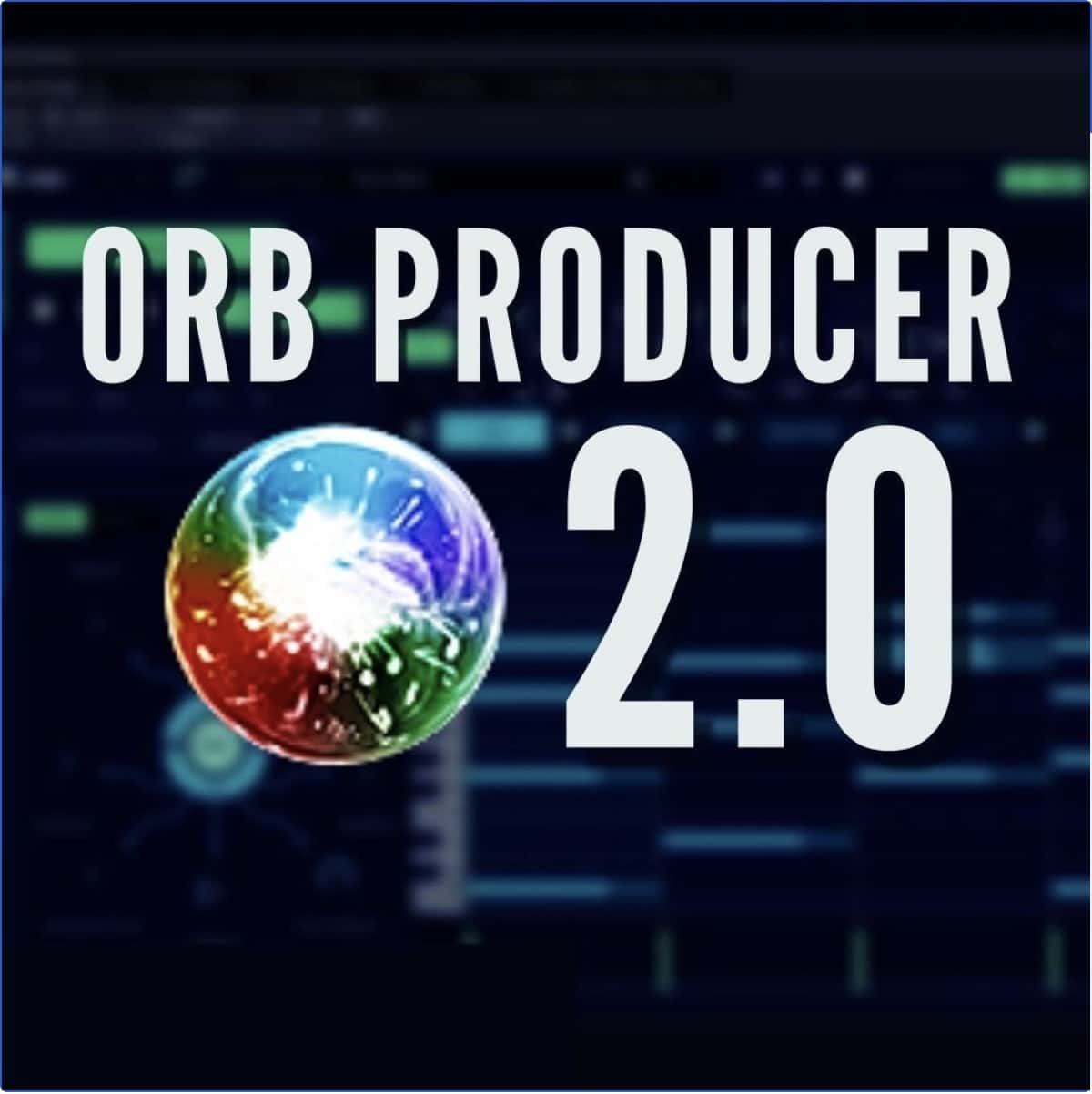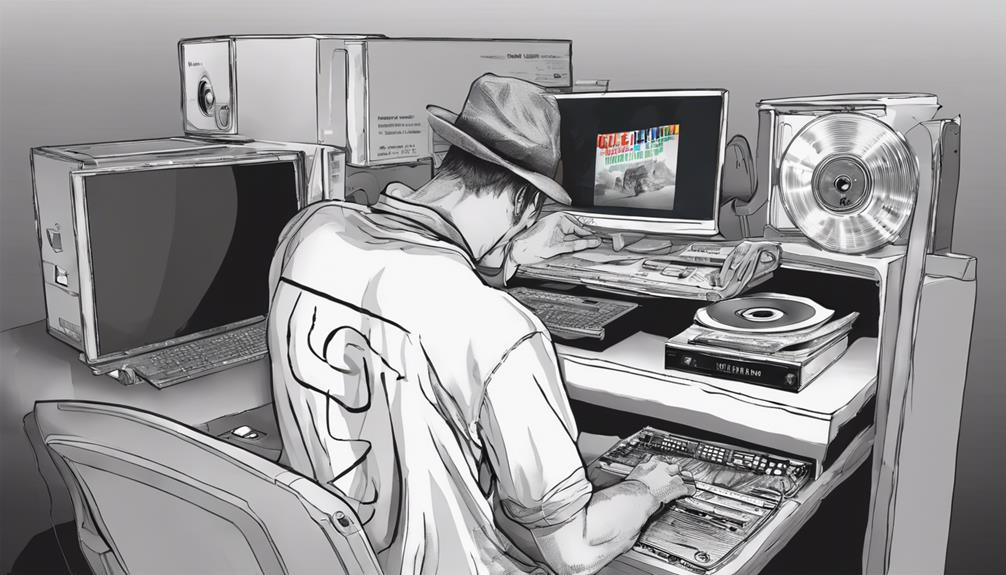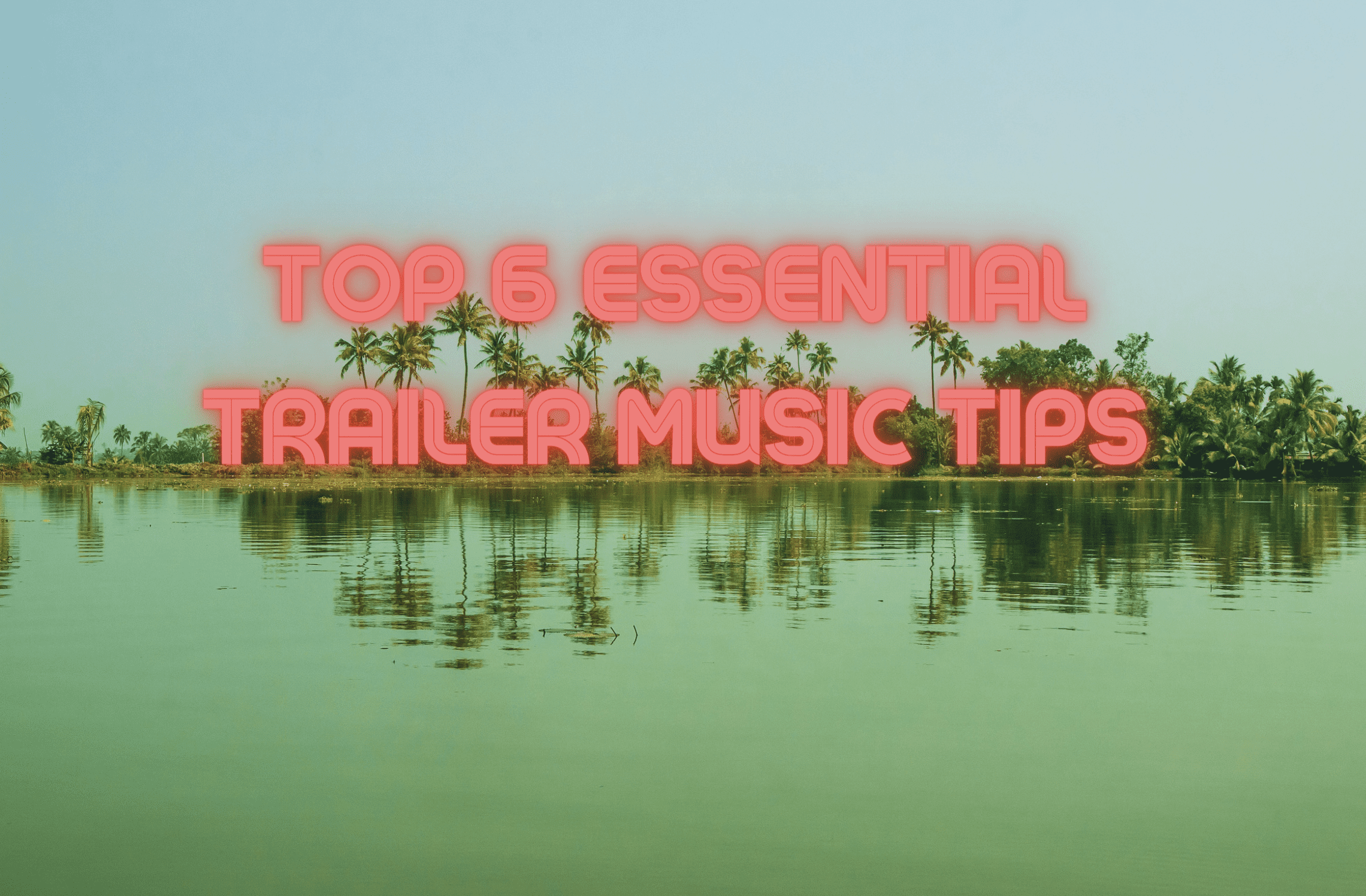Mastering songs involves enhancing sound quality and ensuring compatibility for playback. It is crucial for improving music creations. Unlike mixing, mastering balances tracks, adjusts volume, panning, and compression to refine the final mix as a whole. DIY mastering provides creative control but may lack professional expertise. Essential equipment includes studio monitors, audio interfaces, and plugins such as EQ and compression. Tips for beginners include using reference tracks, avoiding over-processing, and taking breaks to prevent ear fatigue. AI technology offers advanced mastering features. Keep in mind, mastering cannot completely fix a bad mix but aims to enhance sound quality and achieve optimal loudness levels.
Key Takeaways
- Use reference tracks for tonal balance and loudness comparisons.
- Avoid over-processing by making subtle and intentional adjustments.
- Take breaks to prevent ear fatigue and maintain objectivity.
- Seek feedback from experienced engineers or utilize online mastering services.
- Focus on tonal balance through effective EQ and compression techniques.
Mastering Vs. Mixing: Key Differences
When we explore the world of music production, mastering and mixing stand out as distinct processes with important differences.
Mixing involves balancing individual tracks to create the final mix, adjusting volume, panning, and compression to achieve the desired sound within a digital audio workstation (DAW).
On the other hand, mastering focuses on refining the final mix as a whole, enhancing clarity, loudness, and preparing tracks for replication and broadcast. Mastering engineers utilize a mastering chain to fine-tune levels, EQ, and dynamic range, ensuring the track is optimized for various playback systems and formats.
Mastering a song is the final step in the music production process, where tracks are arranged in the final sequence and any audio defects are corrected. It's essential to understand the distinctions between mixing and mastering to achieve a polished and professional sound in your music production endeavors.
DIY Vs. Professional Mastering
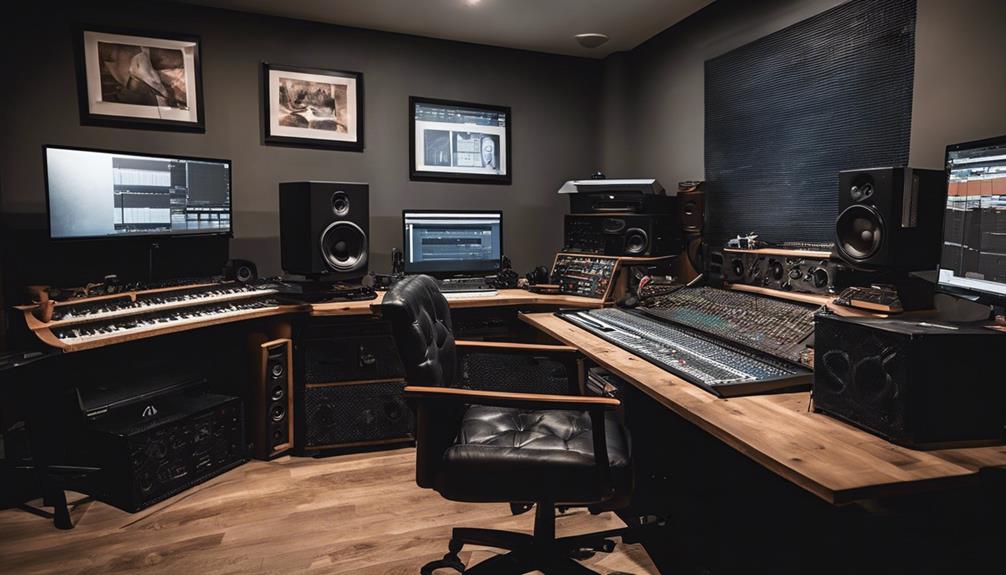
For musicians seeking to release their music, the decision between DIY mastering and professional mastering carries substantial importance in determining the final quality of their tracks.
DIY mastering allows for creative control and cost savings but may lack the expertise and objectivity of a professional mastering engineer. On the other hand, hiring a professional offers the benefit of experienced ears, industry-standard equipment, and a polished final product suitable for commercial release.
Online mastering services can provide a middle ground, with quick turnaround times and affordable pricing. Opting for a professional mastering engineer ensures a fresh perspective, tailored adjustments, and a professional touch that can elevate the quality of the final master.
While DIY mastering can be a valuable learning experience, investing in professional mastering for important releases can greatly enhance the overall quality and impact of the music. Choose wisely to achieve a good and polished outcome that meets industry standards.
Essential Equipment for Mastering
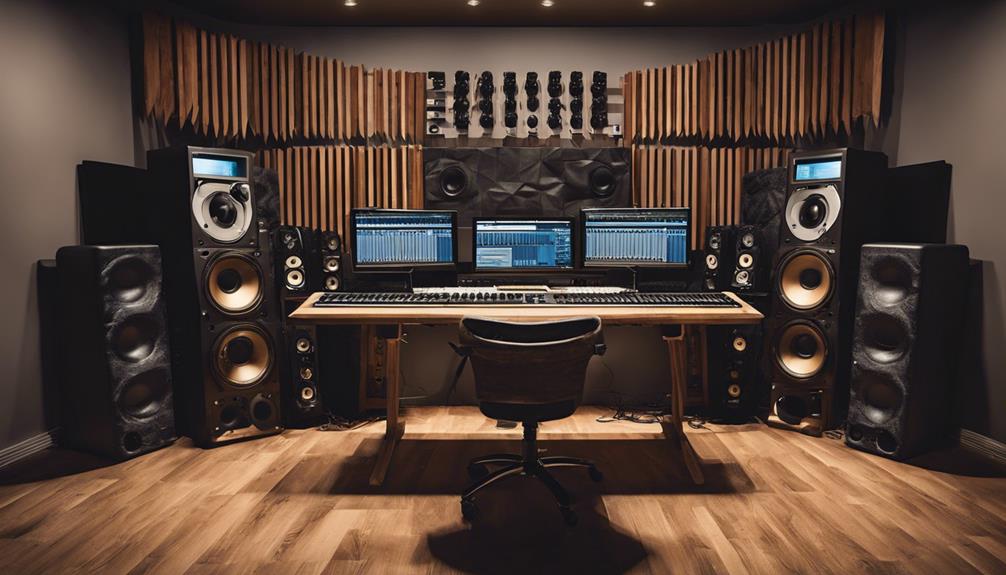
When it comes to mastering music, having the right equipment is essential. High-quality studio monitors allow for accurate sound reproduction, ensuring you can hear every detail in your music.
A dedicated audio interface and quality headphones are also vital components for achieving professional results in your mastering process.
Tools for Mastering
To master songs effectively, one must guarantee they've essential tools such as high-quality studio monitors or headphones to achieve accurate listening. Additionally, utilizing an audio interface for external connections, room treatment materials for a balanced environment, and a digital audio workstation (DAW) software for mastering techniques like EQ and compression are crucial. Incorporating outboard gear such as equalizers, compressors, and limiters can add analog warmth to the process.
Techniques like multiband compression, true peak limiting, and dynamic control using attack and release settings enhance the final product. Widening the stereo image and referencing tracks for comparison further refine the mastering process. Ensuring proper stereo levels and perceived loudness through these tools contributes to achieving professional results.
Studio Monitoring Systems
Investing in reliable studio monitoring systems is imperative for mastering engineers seeking accurate sound reproduction in the mastering process. Calibrated studio monitors are designed to provide a flat frequency response, allowing for detailed analysis of music that may be missed on consumer-grade speakers. These studio monitors play a pivotal role in ensuring that mastering decisions result in professional and consistent outcomes that translate well to various playback systems.
15 Steps to Mastering a Song
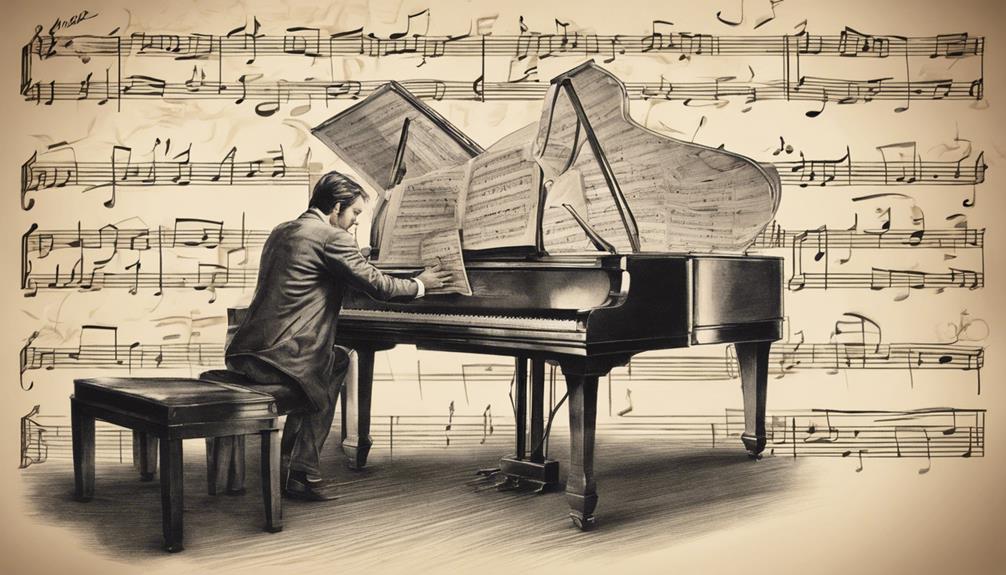
Let's begin the process of mastering a song by importing the final mix into a mastering software or DAW. When it comes to mastering in music production, creative decisions play an important role in making sure your song sounds good.
Here are three essential steps to help you master your song effectively:
- Analyze and Adjust: Take a close look at the frequency range and overall level of your mix. Make any necessary fixes like EQ adjustments or dynamic range enhancements to ensure a balanced sound.
- Apply Processing: Utilize tools like compression, EQ, stereo enhancement, and limiting to enhance the quality of your mix. These processes can help achieve a polished and professional sound, bringing your song to its final stage.
- Ensure Consistency: Maintain consistency in tone and level across all tracks in your song. This step is important to make sure that your mastered tracks sound better and translate well across different playback systems and mediums.
Tips for Beginner Song Masters
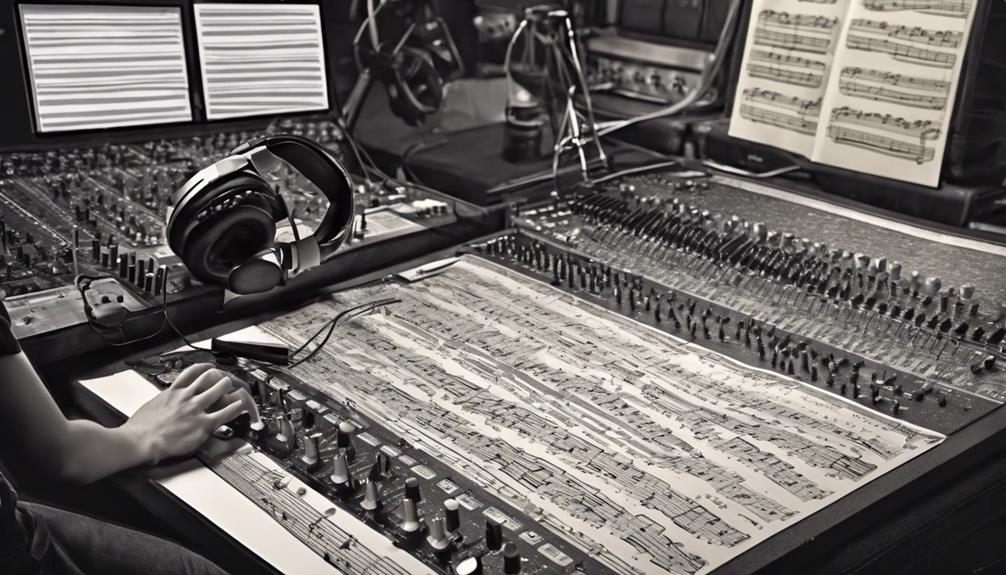
After understanding the basics of EQ and compression in mastering a song, beginners can benefit from implementing key tips to improve their mastering skills.
Using reference tracks is vital for comparing tonal balance and loudness levels, helping achieve a professional sound.
It's important to avoid over-processing by making subtle adjustments that enhance the mix without drastically altering it.
Taking breaks during mastering sessions prevents ear fatigue and guarantees objectivity in decision-making.
Beginners can also explore online mastering services or seek feedback from experienced engineers to enhance their skills.
By focusing on tonal balance and utilizing EQ and compression effectively, beginners can elevate their mastering capabilities and produce high-quality tracks.
Remember, mastering is a skill that develops over time, so patience and practice are key.
Common Mistakes to Avoid
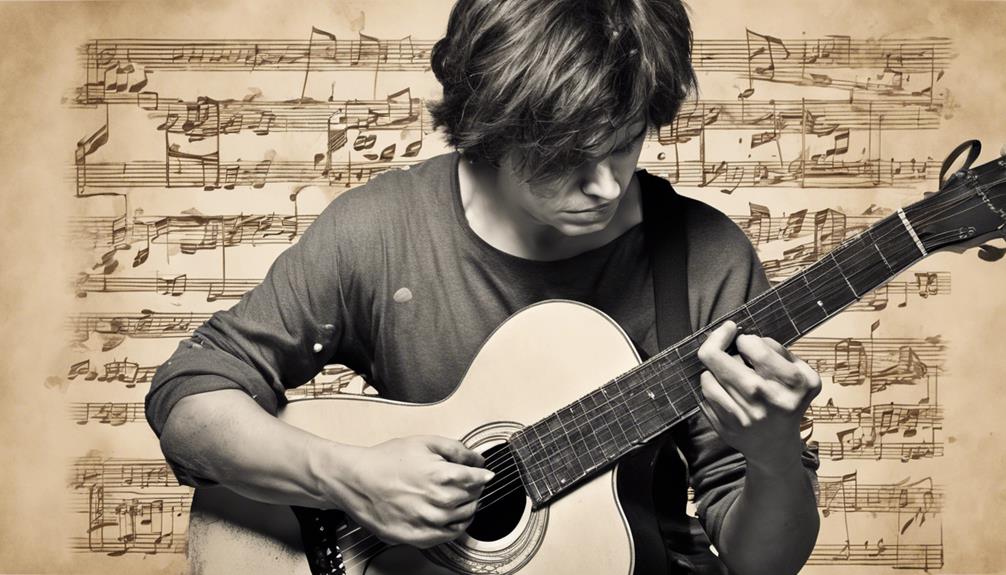
To enhance mastering skills, beginners must steer clear of common mistakes that can hinder the quality of their final mixes. Here are some key pitfalls to avoid:
- Over-compressing: Resist the urge to squash dynamics excessively during mastering. Maintaining the natural ebb and flow of the music is important for a lively and engaging final mix.
- Excessive EQ Boosts: Be mindful of boosting frequencies excessively. Aim for a balanced frequency spectrum to prevent certain elements from overpowering others in the mix.
- Loudness Maximization: Approach loudness maximization cautiously to avoid introducing distortion. Clarity is vital, so make sure that your master maintains its integrity even at higher volume levels.
Getting Started With Emastered
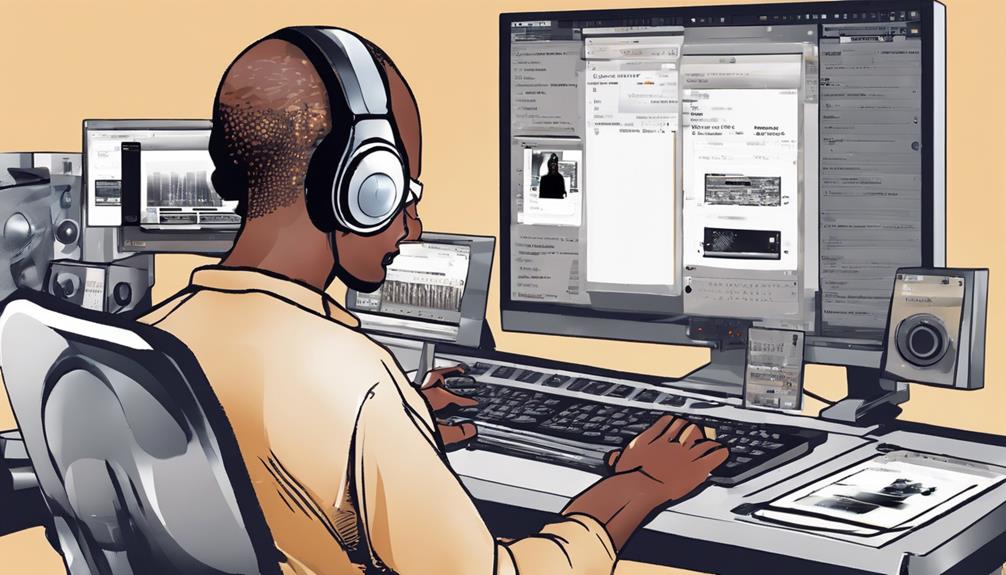
Upon uploading their songs to eMastered, users can access a range of customizable settings for automated mastering processing using AI technology. eMastered, an online mastering platform, leverages AI technology to enhance audio tracks efficiently. By utilizing eMastered, beginners can achieve professional-grade results without extensive mastering knowledge. The platform allows for tailored adjustments such as intensity, clarity, and wideness, ensuring customized outcomes to suit individual preferences. Additionally, users benefit from instant previews of the mastered tracks, enabling quick review and approval before downloading the final versions. eMastered supports various download formats, facilitating easy distribution and playback of the mastered songs. For beginners looking to dive into the world of mastering songs, eMastered provides a user-friendly interface and advanced AI capabilities to streamline the process and elevate the quality of their music effortlessly.
| eMastered Benefits | Description |
|---|---|
| Customizable Settings | Adjust intensity, clarity, and wideness for personalized results. |
| Instant Previews | Review mastered tracks promptly before finalizing. |
| Download Formats | Choose from various formats for convenient distribution and playback. |
| AI Technology | Utilize advanced AI processing for enhanced audio mastering. |
Mastering Questions Answered
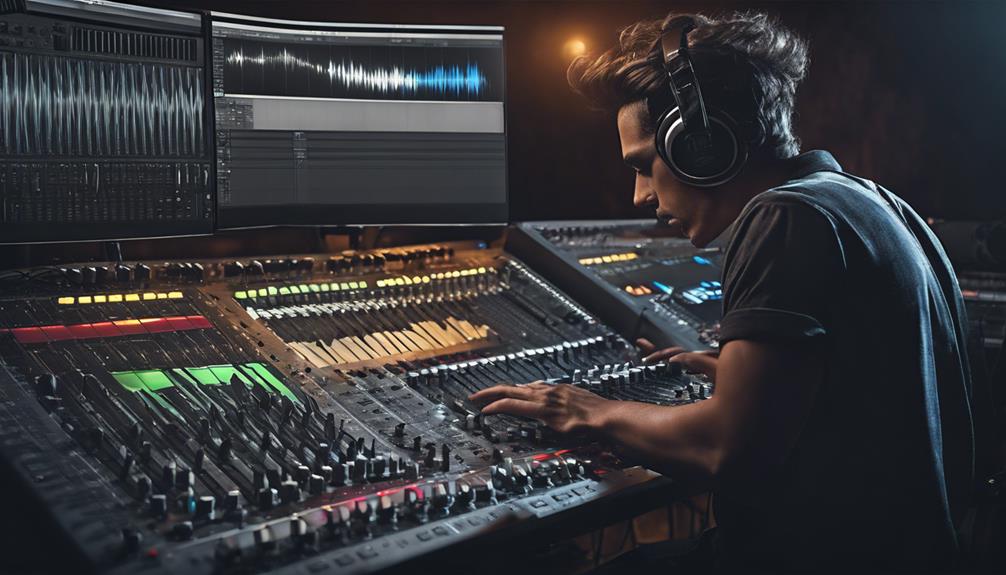
In mastering, understanding key concepts such as the impact of loudness levels and the role of multiband compression can greatly enhance the final quality of a song. Here are some common mastering questions answered:
- Can mastering fix a poorly mixed song?
Mastering can't completely fix a bad mix, but it can enhance the overall sound quality and make it more refined.
- How loud should a mastered song be?
Mastering aims to achieve ideal loudness levels without clipping, ensuring the track is competitive and suitable for different playback systems.
- What is multiband compression in mastering?
Multiband compression is a technique used for mastering the low end of a track, helping to control and enhance the dynamics of specific frequency ranges.
Frequently Asked Questions
How Do You Master a Song for Beginners?
Mastering a song involves refining its sound to achieve a polished final product. We balance frequencies with EQ, control dynamics using compression, and guarantee no distortions with proper levels.
Taking breaks to prevent ear fatigue and fresh listening is essential. Create an ideal listening environment with quality monitors.
These steps will guide beginners in mastering songs effectively.
What Level Should My Song Be Before Mastering?
Before mastering, aim for an average peak level of -6 dB to -3 dB to allow room for processing. Keep the loudest sections below -0.3 dB to prevent clipping.
Avoid excessive loudness to prevent artifacts in mastering. Consistent levels maintain balance and prevent sudden volume changes.
Use reference tracks for perspective.
What to Do Before Mastering a Song?
Before guaranteeing a song, we make sure our mix is well-balanced and free of any issues like clipping or distortion. We check track levels to avoid overpowering elements.
We create an ideal listening environment with high-quality headphones or studio monitors. Taking breaks prevents ear fatigue. Using reference tracks helps compare tonal balance.
These steps guarantee an excellent final master, reflecting our dedication to quality and innovation in music production.
How Hard Is It to Master Songs?
Mastering songs can be challenging, requiring technical skills and critical listening. It takes time and practice to develop the expertise for effective mastering.
Understanding tools like EQ, compression, and limiting is essential. Achieving ideal loudness levels without sacrificing quality is key. Attention to detail, consistency, and enhancing the overall sound without over-processing are indispensable.
It's a demanding process, but with dedication and learning, mastering songs becomes more manageable.
Conclusion
In mastering songs, we're like sculptors shaping a masterpiece from raw materials. With patience and practice, we can refine and polish our creations to perfection.
Remember, mastering is an art form that requires dedication and attention to detail. By following the steps outlined in this guide, you can unleash the full potential of your music and bring it to life in ways you never imagined.
Keep honing your skills and let your creativity flourish.




